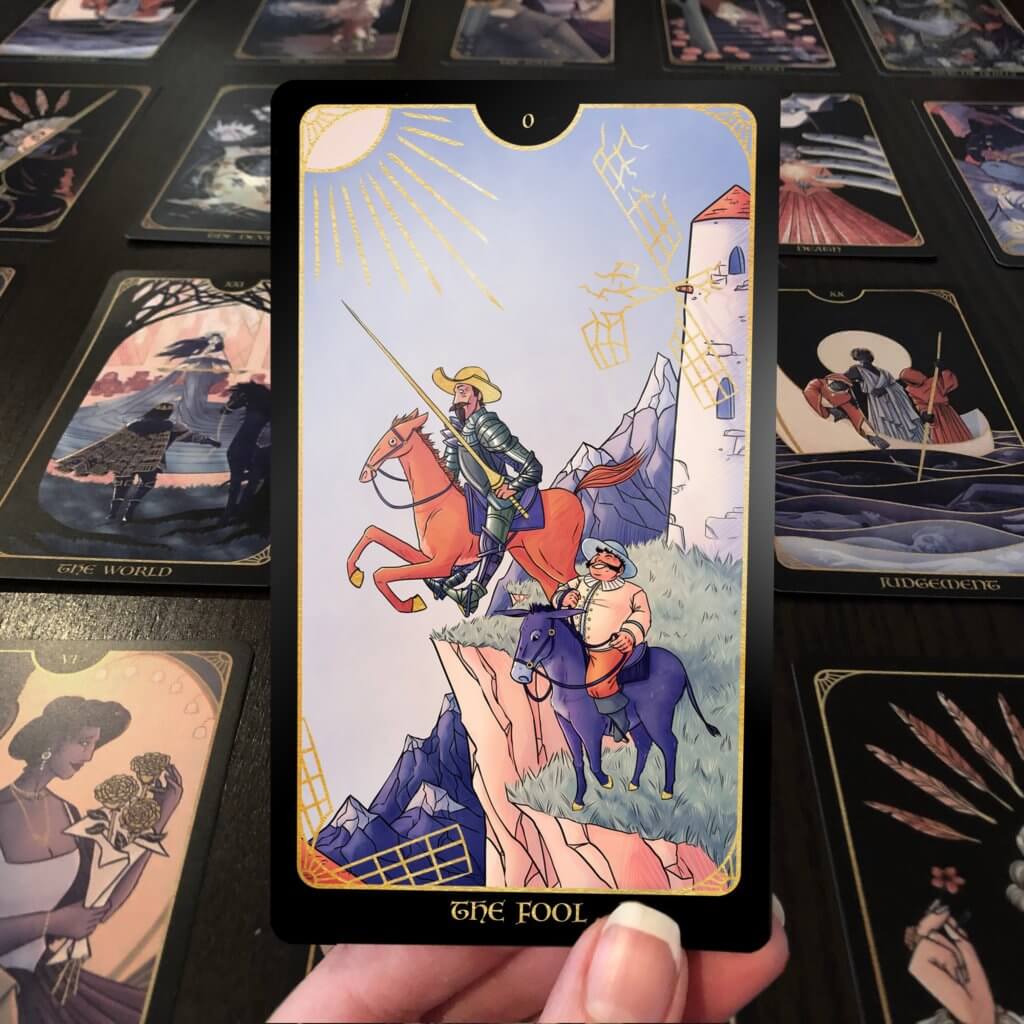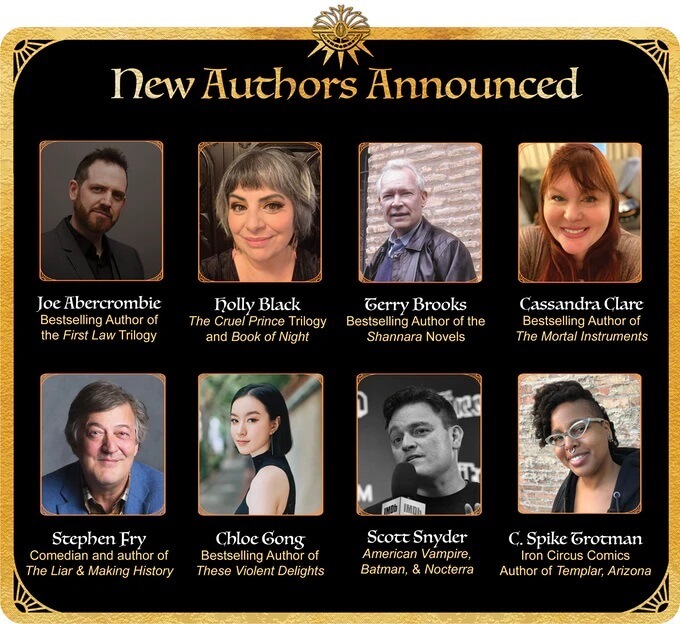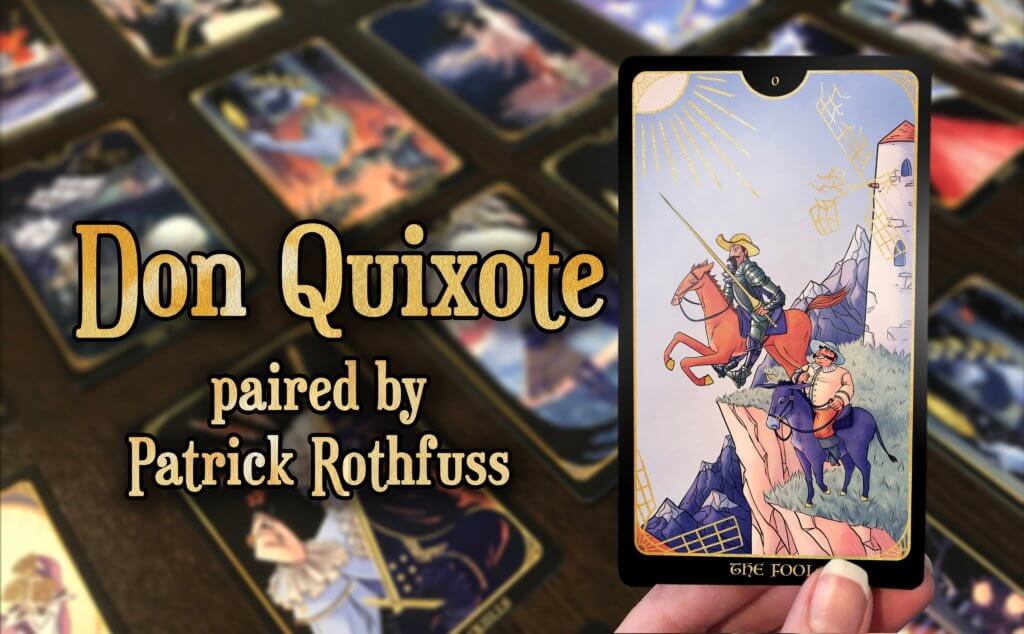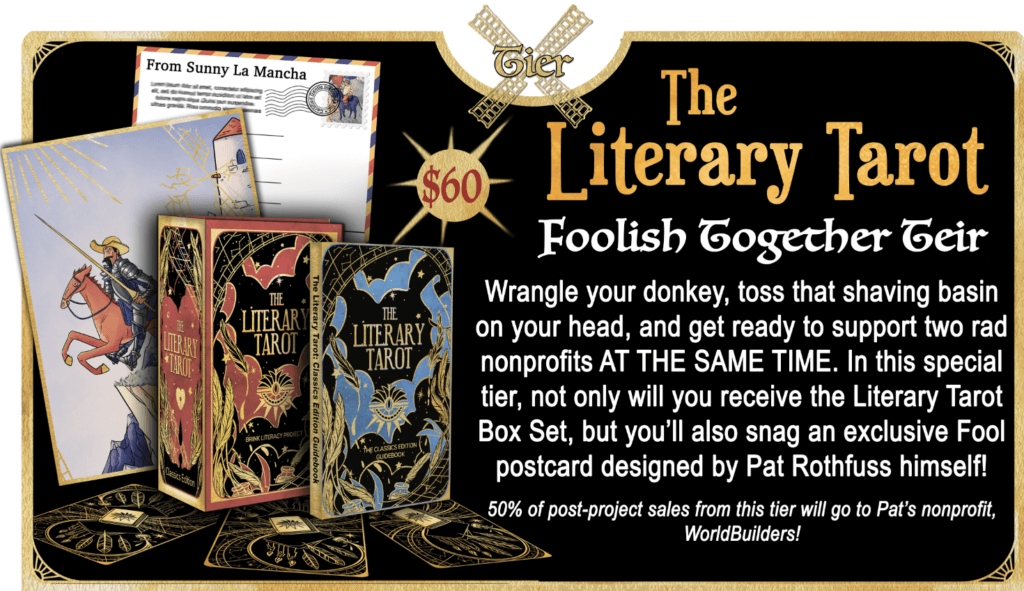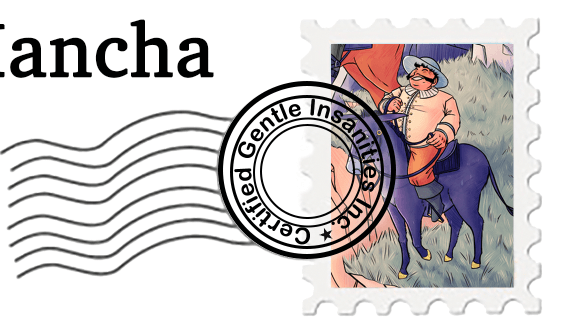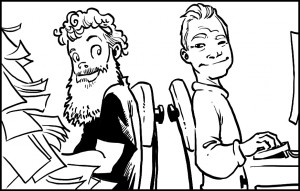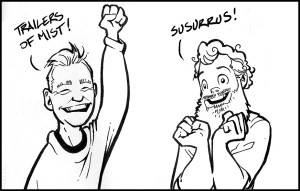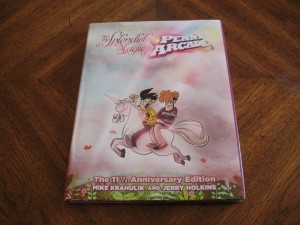So in the past, I’ve been known to interview folks from time to time.
Today, helping me continue that fine tradition, is the inestimable Mary Robinette Kowal.
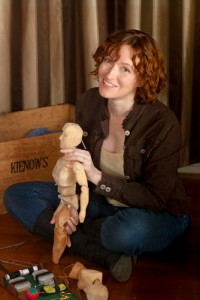
Heya Mary,
Well, hello there!
Thanks for agreeing to do this.
Problem is, I’m really bad at introductions. So let’s do it this way:
Let’s say you’re at a party and you end up mingling with people you wanted to impress. What sort of things about yourself would you casually drop into the conversation to prove that you’re awesome? They don’t all have to be true.
The fact that I’m a professional puppeteer is always a conversational cheat. If I really want to hold onto the conversation I’ll then follow up with working in Iceland, or a story of a show gone horribly, horribly wrong. The fact that I’m an author… I’m still not used to that.
It’s nice to hear I’m not the only one that’s still not used to it. I’ve always written, but I’ve only been an author, (that is to say a professional writer) for a comparatively short period of time.
Okay. My turn. You’re also Vice President of SFWA.
True, but there are two types of people to whom I would be chatting with at a party. People that would have no idea what SFWA is and people who DO know and want me to fix something. The last thing I want to do is to remind them that I’m the vice president. Besides, I’ll be out of office at the end of June.
You’re also a Hugo Award winner and a Nebula nominee.
Oh… yes. Those don’t seem real sometimes. I just… I wouldn’t bring them up at a party because they feel like bragging. I sort of feel like I didn’t have anything to do with being tapped for those, even though I know that it’s for my work. It’s just that they were such amazing surprises that I feel more like it’s a gift the fans gave me and that I shouldn’t take credit for it.
Although at panels at conventions I totally do, because it provides context. Just the party setting that feels awkward. I guess I should also mention that I won the Campbell Award for Best New Writer in 2008 and my work has received two UNIMA-USA Citations for Excellence, which is the highest award an American puppeteer can achieve.
Also, I’ve met Sting. You did say it was a party, right?
Oooh. That’s definitely braggable. Was he cool?
He was very cool. I taught him the lyrics to a song, but to get that story, you’ll have to ask me at a party. A girl needs some mysteries left to talk about.
Lastly, but not leastly, I should mention that you’re the author of the recently published Glamor in Glass.
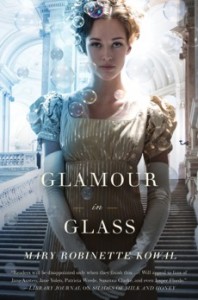
A book I enjoyed to a startling degree, despite the fact that it was well outside my usual reading habits. (For more details, you can read Pat’s review on Goodreads.)
Let’s start with an easy question. What Muppet do you feel the strongest emotional connection with?
Ernie.
At World Fantasy this year I saw someone stop in the hallways and thank you for “writing a regency novel that doesn’t suck.”
Do you think of yourself as a regency writer?
La! At this point, it would be hard not to but– and this is important – it is not the only genre or time period I write in. That’s something that my agent and I talked about at length when we were making career plans for me, in fact.
When I’m writing short form, I write all over the map. Science-fiction, horror, secondary world fantasy. It’s all fun. But in long form, we’re keeping me in the historical fantasy realm, and my first four novels will all be set in the Regency.
Assume that I’m an idiot and don’t know what Regency literature is. Could you explain the genre to me?
This is basically work that is set loosely in the Regency period, although most people expand it to include the 1790s up through the end of the 1820s. That means that you are looking at stories influenced by Jane Austen and the Napoleonic Wars. So Georgette Heyer and Patrick O’Brien are both writing in the Regency but they write completely different books. I clearly am more on the Austen end of the spectrum.
Do you find it tricky to write in a well-defined historical time period?
Yes. Oh, heavens, yes. Part of the trouble, of course, is making sure that you get the details right but the larger challenge is making all of that accessible to a modern audience. Jane Austen could say that a room was done in the most fashionable style, but my readers have no idea what the fashion of the day was– actually, let me rephrase that. SOME of my readers don’t. Others can tell you the exact thread count of the preferred muslin fabric. And that doesn’t even get into trying to explain that today’s muslin is NOT the same thing as muslin in Austen’s day. Ah… language.
How do you deal with that sort of thing? I mean, the language has changed in some pretty drastic ways over the last 200 years…
Most of it hasn’t, thank heavens, and is still recognizably modern English but where it did change, it was often a doozy of a shift. Like the word “knowledgeable” which used to mean famous and now means well-read or educated.
In Shades of Milk and Honey, I tried to get the feel right but didn’t worry overmuch about if a specific word was period-correct for 1814. Two days after the book came out, a fan called me to tell me that I’d misused the word “check.” It meant “to stop” so a line like, “I shall check on the strawberries” became unintentionally comic.
In an over-reaction, I created the Jane Austen spell-check dictionary for Glamour in Glass. Basically, I took the complete works of Jane Austen, ran it through an engine that created a list of unique words, which I then plugged in as a spell-check dictionary. It flag any word that she didn’t use. From there, I looked it up to see if the word a) existed in 1815 or b) had shifted meaning.
I did take pains to use words that were accessible to a modern reader, and even used a couple that didn’t exist because they were the right word. At the end of the day, authenticity is less important than the story. If it gets in the way of a reader understanding, then I’m doing it wrong. But since language reflects the culture that uses it, an attention to word choices can enhance the texture of the novel.
Can you give us another word or two you had to do without?
Leyline. I thought it was this ancient word, but it turns out that it was coined in the 1950s.
Wastepaper basket. Trashcans, wastepaper baskets, garbage cans… none of these exist even as a concept. Everything got reused, fed to the pigs, or burned in the fire.
I’ve actually got a list of the words I cut on my website.
If you had to pick your favorite story of all time, in any medium, what would it be?
You’re kidding, right? I mean. One story. Can you answer that question? The one I have reread the most frequently is Steven Brust’s The Sun, The Moon, and The Stars but my favorite changes by the hour. And seriously. What’s your favorite?
I am as constant as the moon. The Last Unicorn by Peter S. Beagle holds its place firmly in my heart.
That is a beautiful book. See, now I’m tempted to say The Princess Bride since I realized you said any medium.
Johnny Depp, or Brad Pitt?
Nathan Fillian.
Agreed. You’re the first one to realize that was a trick question.
What’s your revision process like?
I don’t revise. What you see is exactly the way I write it. It takes me about a month to write a novel.
Um. What?
I’m messing with you. I just wanted to see your face when I said that and totally should have asked for a camera.
God. Wow. Yeah. You got me.
I was really ready to hate you. Like, hate you forever and ever. Seriously.
Mwahahaha!
In truth I have a fairly fluid revision process. I put a lot of work into having an outline that is structurally sound so that I can put my writing effort into the emotion of the scenes. While that outline gets tweaked and adjusted as I go, it does mean that my revisions don’t usually involve major structural shifts.
I also write with alpha readers following along. They are seeing raw draft. I instruct them to just talk about how the story is playing and not to talk about sentence level issues. Generally, I stay about two chapters ahead of them, which I find is about the right spacing to be able to adjust to their reactions to the story and not need to ask them to re-read material that I’ve altered. Occasionally, I ret-con things for them. Having that give and take is helpful for me.
It also gives me the freedom to focus on the story and not the language. After I finish the story, I do a read-through to look at structure and pacing. Then my last pass is a language pass. I do a once over with the spell-check dictionary then read the entire thing aloud to adjust flow.
All told, I spend a couple of months in the outline/research phase, about two months to get the first draft, then another three months to revise and edit it.
Okay. That’s an acceptable timeline. We can still be friends.
Oh good. That would be awkward at parties otherwise.
You’re relatively new to the publishing world. How has getting your book published changed your life?
Well, I’m doing a heck of a lot less puppetry. I travel almost as much as when I was on tour. And no one tells you this, but writing is really hard on your body.
How do you mean, specifically?
I was in a really active profession and writing is so sedentary. I put on about fifteen pounds, just because I wasn’t moving around enough. My lower back hurts from sitting too much. As a species, we’re just not designed to sit all day.
Now, I’ve got a standing desk that I use at home. I walk at least a mile every day, and do push-ups and squats daily to try to stay at least a little fit. I’m back down to about five pounds over my performance weight and feel pretty okay with that.
How many copies of your own books do you currently own?
One and a half shelves. But that includes magazines and anthologies. Shades of Milk and Honey itself? Seven copies. We have a small apartment.
What’s the most shameful self-promotional thing you’ve ever done?
Worn a white spandex body-suit?
Don’t bother googling it folks. I just tried and came up dry….
It’s what we wore in the puppet show that my company performed at WorldCon in 2011. There is actually a photo out there someplace.
We’ll see if anyone can find it and post it in the comments below.
Do you have a particular piece of grammar that you screw up regularly?
Lie, lay, lain, laid…. I just avoid using the word.
God. I’m awful at that one too. It’s just wired into my head wrong.
It’s just mean is what it is.
If you could punch one literary figure in the face, who would it be?
Hm… Tricky. Someone living could fight back. Someone dead would be all icky plus the bother of digging them up.
Edith Sitwell used to lie in an open coffin before she began her day’s writing. Do you have any little rituals that help you write?
I set a timer or try to meet up with friends. I’m a natural procrastinator, so I have to create deadlines.
So you mean you actually meet up with friends to write?
I do. Usually at my local coffee shop – which contributed to the aforementioned weight gain – but that doesn’t always work out. What I’ve lately been doing are virtual hangouts via Google+. We do 45-minutes of writing, followed by 15 minutes of chat. It’s great because it allows each writer to retain control of her own space but also socialize. Plus, the power of peer pressure means that everyone winds up being productive. Laura Ann Gilman said, “It takes the lonely out of writing.” She’s totally right.
That’s something I’ve been struggling with for years. I have some pretty serious erimitic tendencies, but the solitary nature of the profession still gets to me.
Is the beard an outward representation of your erimitic aspirations? And really? Did you just really use erimitic in cold blood?
Yeah. That’s how I roll.
And that’s why I like you.
A while back, I made a joke about Transition Putty on my blog. That being, of course, the what we writers buy at Home Depot to smooth out our rough transitions.
If you could have some sort of handyman tool like that, something like Plot Spackle or a Character Level. What would it be?
Didn’t you get the toolbelt? I thought they assigned that to everyone when you sold your first short story. Oh… wait. You’re only a novelist. No wonder. Right… Sorry, dude. Anyway, out of that set, I find that I use the Handwavium pellets the most.
Ah, good old Handwavium, most unstable of the inner-transitional elements.
Thanks much for gracing us with your presence and indulging my curiosity, Mary.
Always a pleasure to chat with you, especially if you’re going to give me a chance to brag and play with your head.
* * *
As an added bonus, Mary has agreed to play with us here in the comments section of the blog for a couple of days. That means if you want to ask her a question, you can. And if she wants to answer it, she will.
This is the first time that I’ve done this sort of thing with another author, so I’m trusting y’all to be your regular genteel selves.
Which is to say that if you kids don’t behave yourselves, I swear I will turn this blog around.
Have fun,
pat
